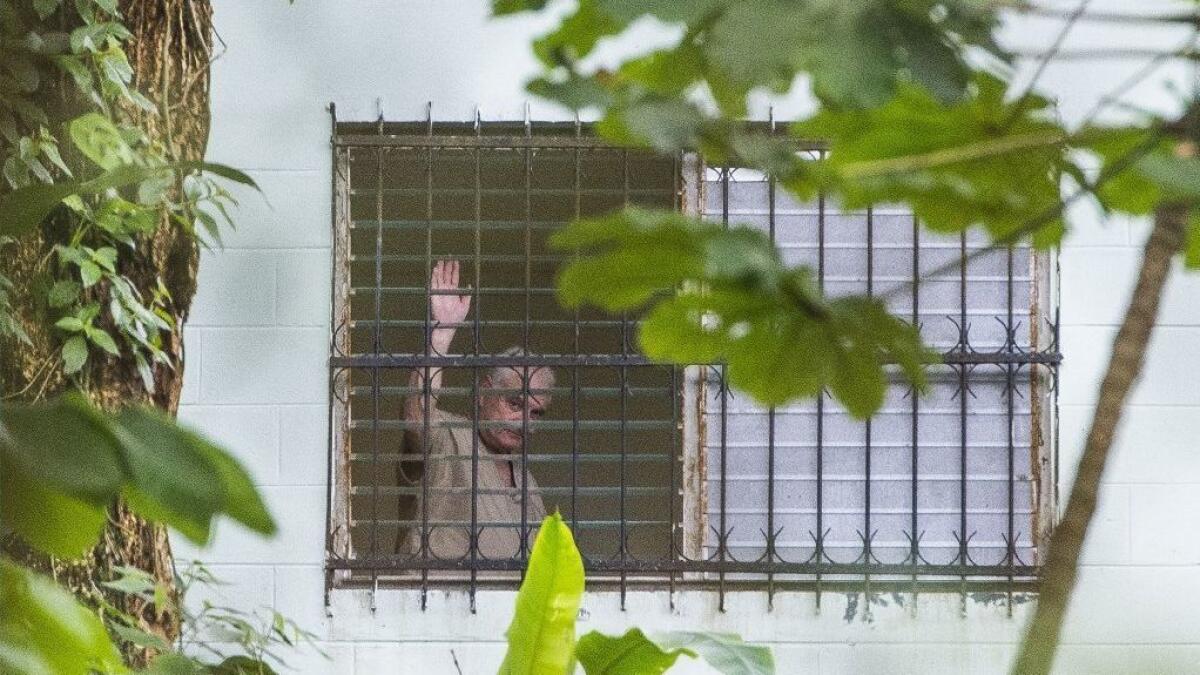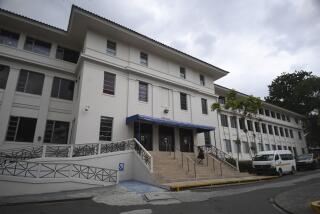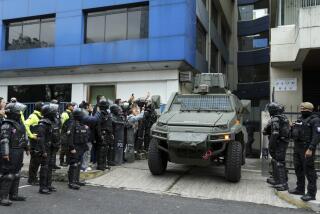Former Panama president extradited from U.S. to face corruption charges

The United States on Monday extradited to Panama Ricardo Martinelli, a former president of that country, to face a long list of corruption and political espionage charges.
Martinelli had fled to the United States in 2014 after his presidential term ended and as Panamanian prosecutors were building several cases against him. Those included allegedly using his office to enrich himself and wiretapping political opponents, including priests, trade unionists and diplomats.
Panama petitioned Washington to extradite Martinelli in 2015, after a Panamanian electoral commission stripped him of the political immunity traditionally afforded former presidents. Last year the billionaire supermarket tycoon was arrested in Miami, where he reportedly was living in a waterfront estate. By Monday, Martinelli was photographed waving from a Panamanian prison.
He has denied the charges against him and said they were politically motivated. A political opponent of Martinelli’s, Juan Carlos Varela, was elected to succeed him as president and will serve into next year.
The legal and political drama comes amid a torrent of corruption cases plaguing the little-regulated country known for the Panama Canal and discreet banking. Panama in recent years enjoyed the highest rate of economic growth in the Americas, but also out-of-control budget deficits as money invested in large construction projects often went missing.
Numerous officials from the Martinelli administration are among those who have been prosecuted.
“The way that this case is handled will go a long way towards defining the future of our democracy and our institutions,” said Jaime Aleman, the former Panamanian ambassador to the United States, who was appointed by Martinelli.
“Our institutions are very weak, and that is an obstacle that could potentially prevent that justice is served,” Aleman told The Times. “Having said that, a lot of progress has been made.”
Panama has struggled to establish the rule of law and a healthy judicial system since 1989, when the United States invaded to oust the country’s dictator, Gen. Manuel Noriega. Noriega was captured and spent the rest of his days in prisons in the U.S., France and Panama. He died last year.
“Current U.S.-Panama relations are strong, as is normally the case,” Aleman said. “The fact that the U.S. government complied with the extradition request will further help consolidate the relationship.”
U.S.-Panama ties in the Trump era were tested recently after a recent recent New Yorker magazine article quoted a former U.S. ambassador to Panama, John Feeley, saying that President Trump is only interested in the country for what it has to offer him and his administration. Feeley, a career diplomat, quit in protest of Trump’s foreign policies.
And last year, a Panamanian court expelled the Trump Organization from a luxury hotel in Panama City, in deciding a commercial dispute, and stripped the hotel of the “Trump” name.
State Department spokeswoman Heather Nauert said the extradition process for Martinelli followed standard practice under a treaty that exists between the two countries. The State Department makes the final call on whether to surrender an individual to a requesting country.
Martinelli had deployed a team of lawyers to avoid extradition. Before his arrest, he was living in an $8-million waterfront estate in Coral Gables, according to the Miami Herald. Panamanian press reported on Monday that Martinelli was in El Renacer (“Rebirth”) prison, where Noriega was jailed before his death.
Nauert, in her statement, said, “It is for Panamanian courts to determine Mr. Martinelli’s guilt or innocence on the charges for which he was extradited.”
For more on international affairs, follow @TracyKWilkinson on Twitter
More to Read
Start your day right
Sign up for Essential California for news, features and recommendations from the L.A. Times and beyond in your inbox six days a week.
You may occasionally receive promotional content from the Los Angeles Times.







